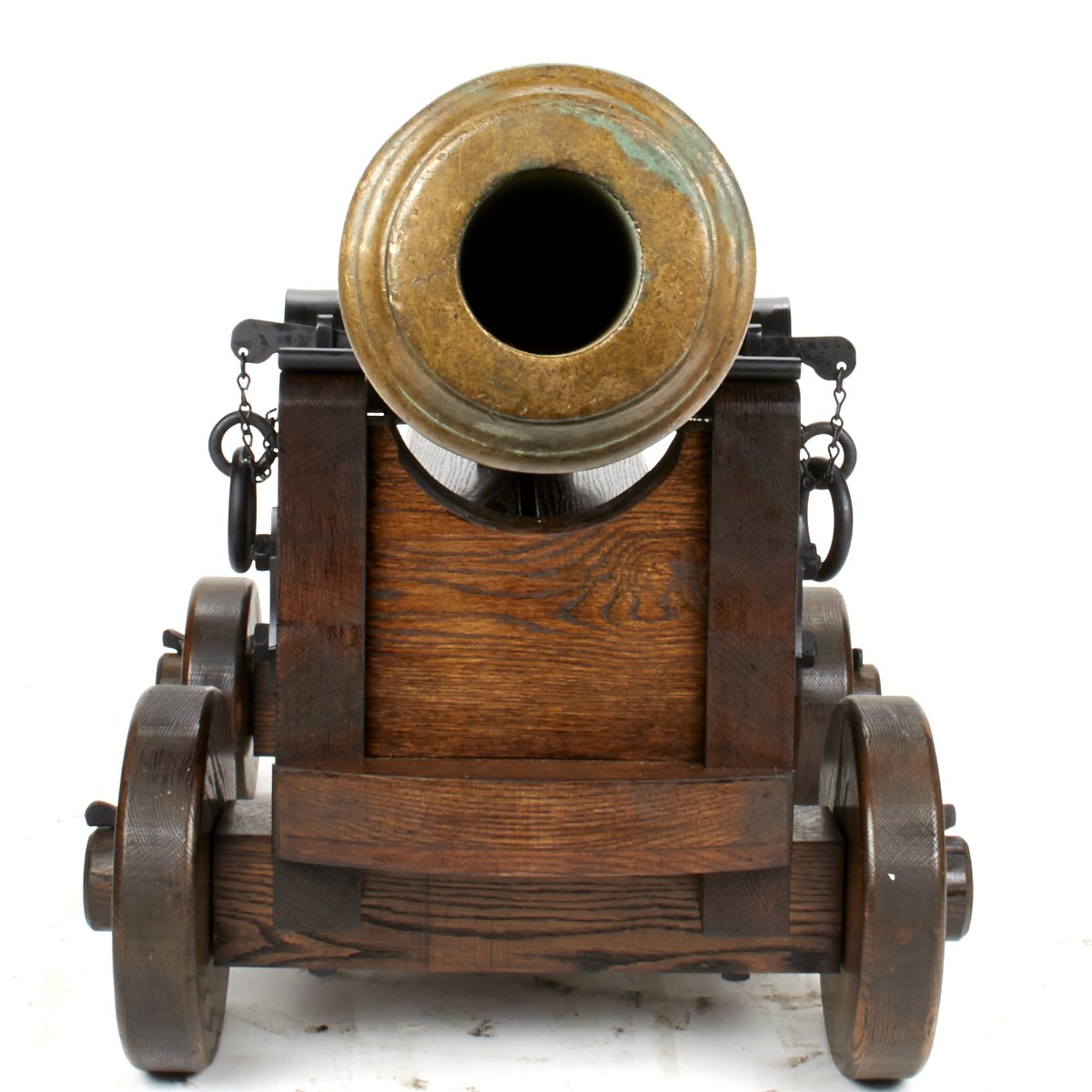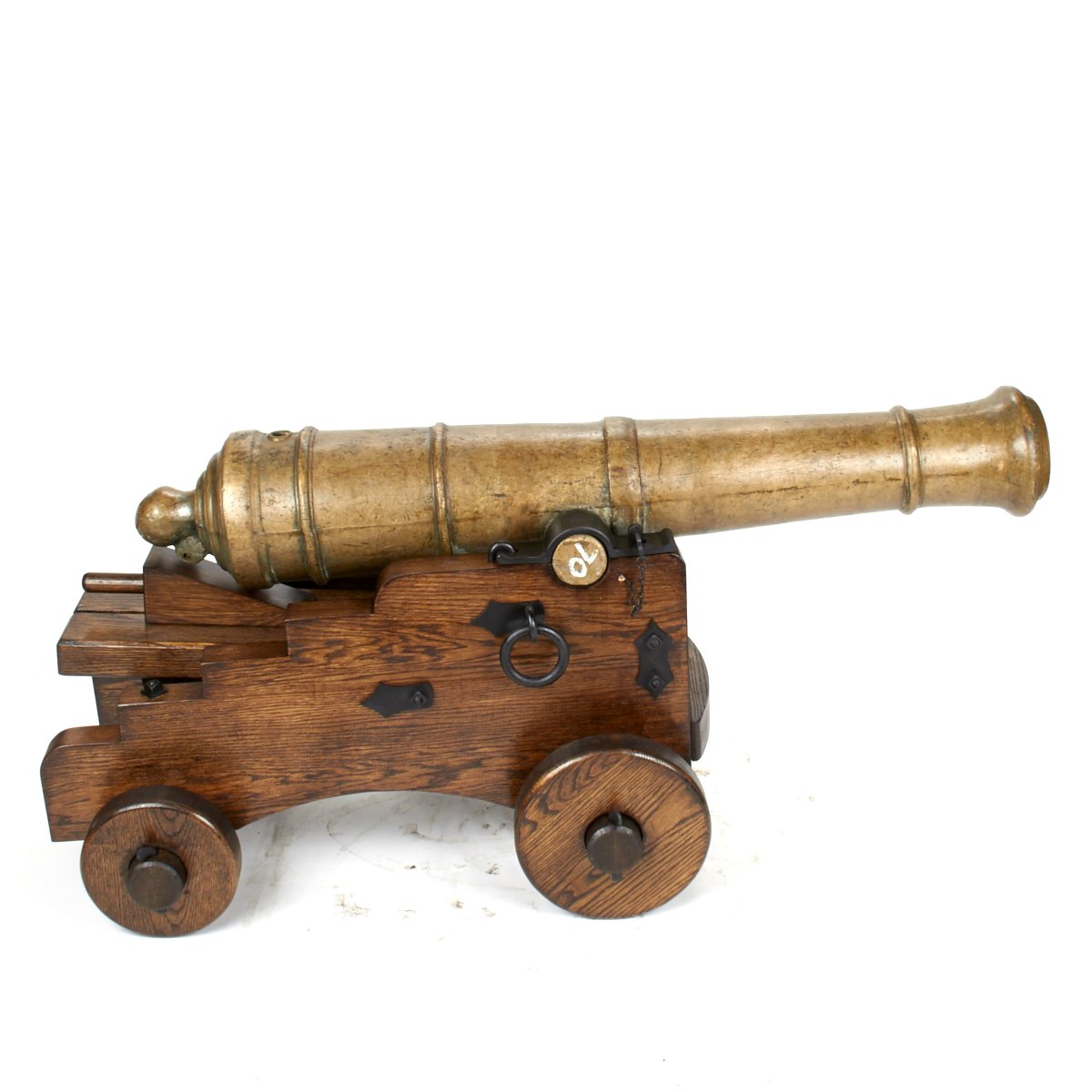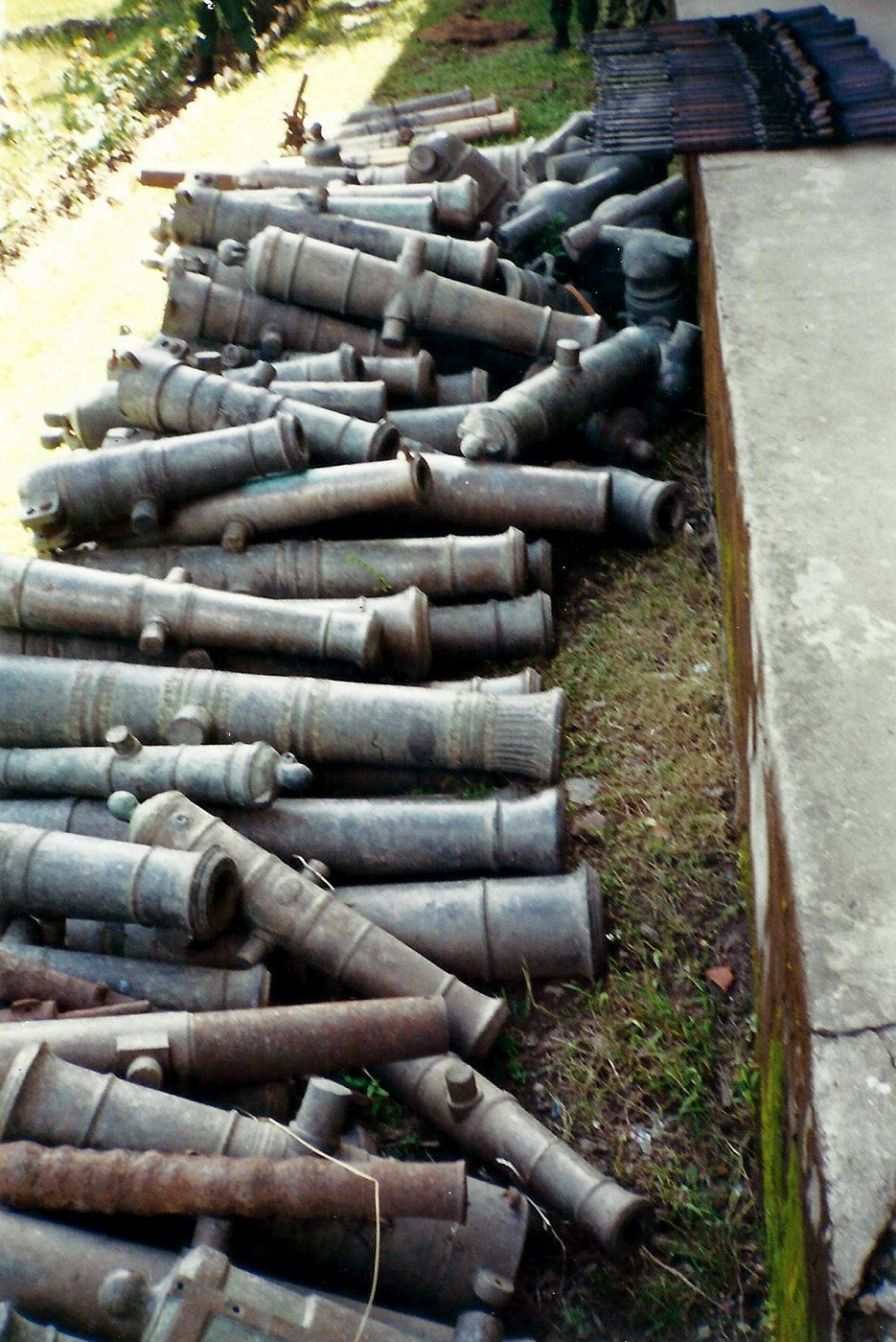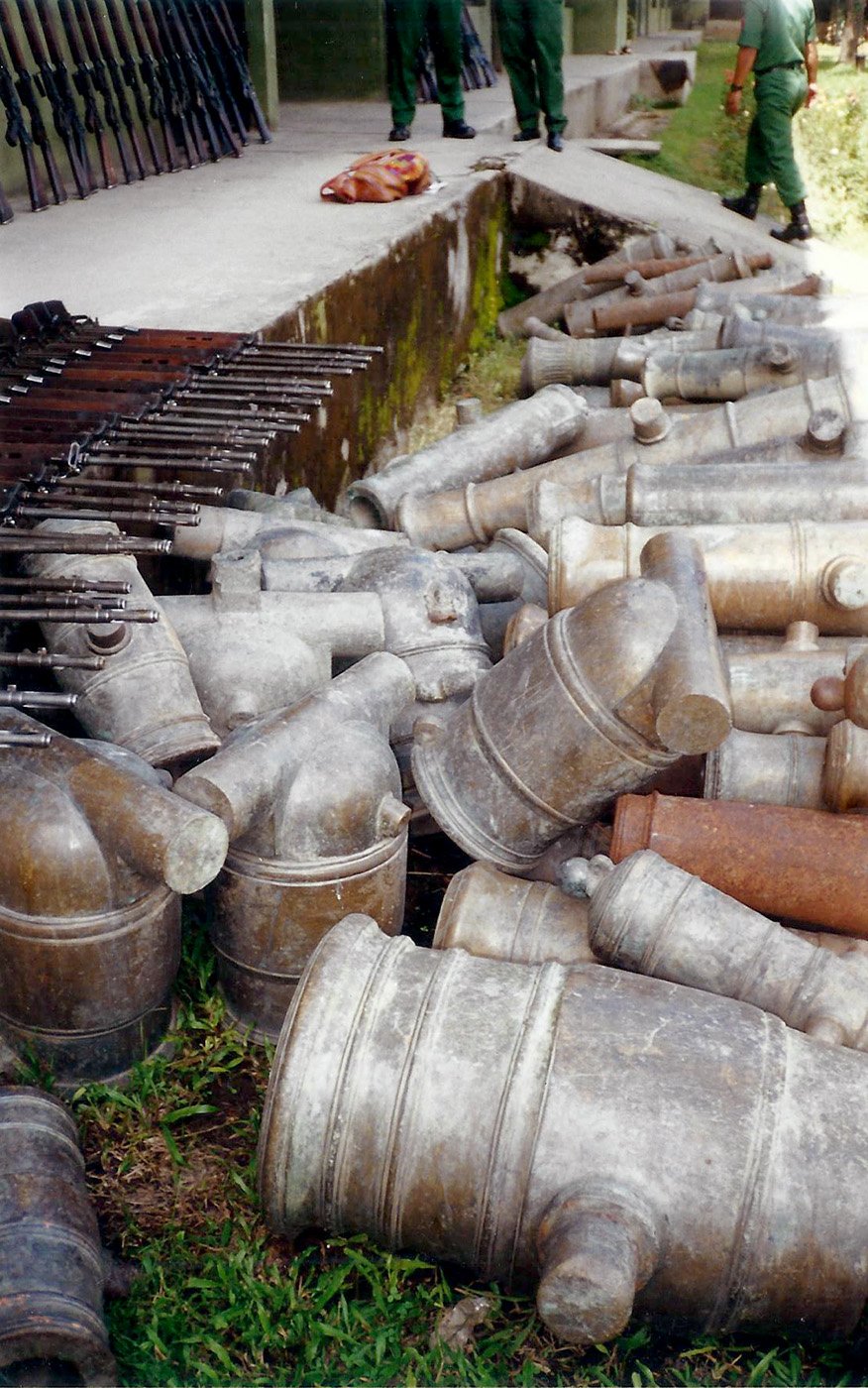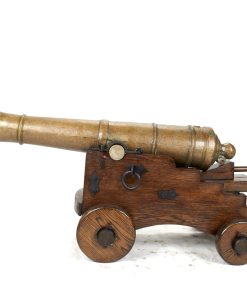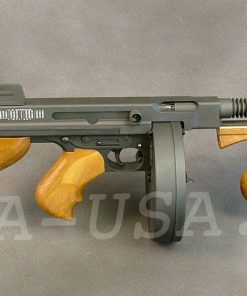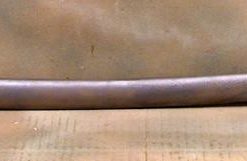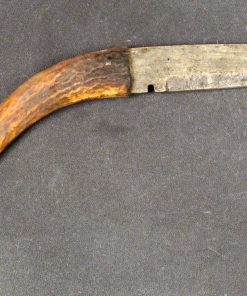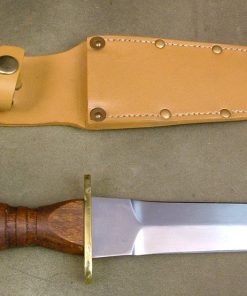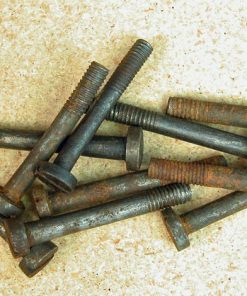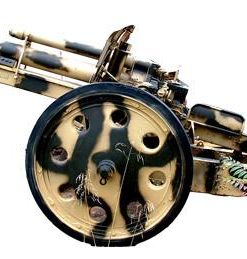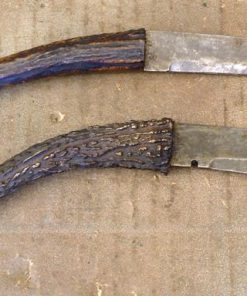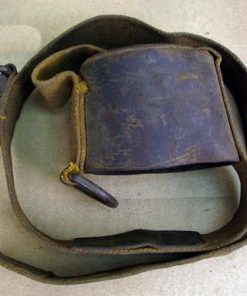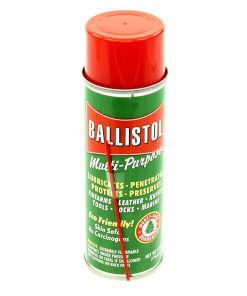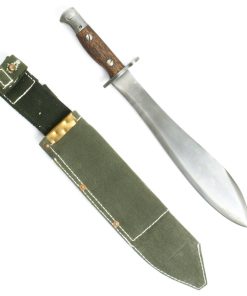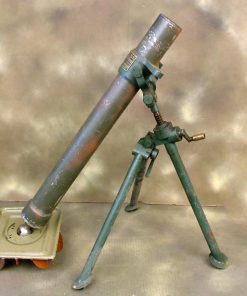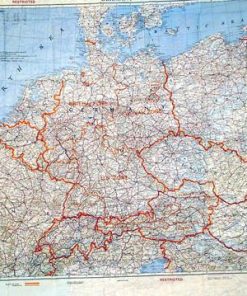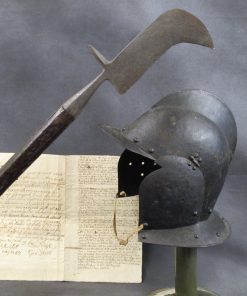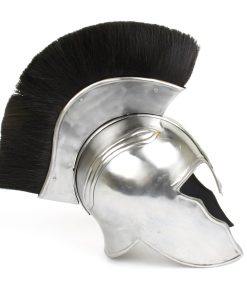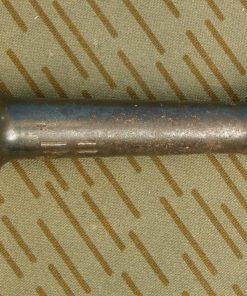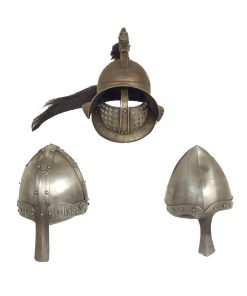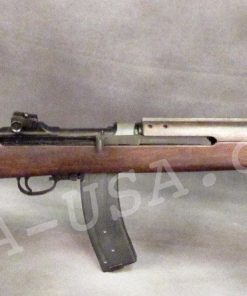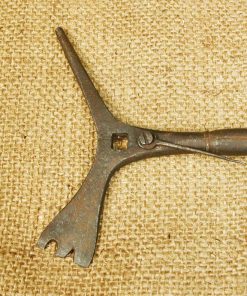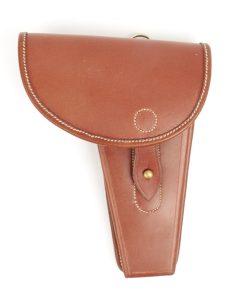Original 18th Century 6-Pounder Saker Bronze Cannon with Oak Naval Carriage Original Items
$ 14.995,00 $ 3.748,75
Original Item: Only One Available. This is a fantastic totally original 18th century bronze cannon tube that measures 53 inches when including the cascabel. The bore is 3.6 inches which designates this as a six pounder (6-pounder). According to the Tower of London this size cannon is considered a SAKER.
Watch IMA’s own antique gun expert Alex evaluate and shoot a similar Bronze Cannon on History Channel’s Pawn Stars:
Though this cannon is British and predates the American Civil War, the United States Army adopted a standardized 6-pounder field gun in 1841 as the aptly-designated Model 1841. The weapon’s design was centered around an all-brass, 3.6-inch diameter smoothbore barrel (an upgrade from previous iron offerings) measuring approximately 60-inches long (swelled at the muzzle). While listing an overall range of 1,500 yards, the weapon’s true lethality was felt at 1,000 yards and under depending on shot selected. The remainder of the design was conventional for the period, involving a mounting assembly atop a two-wheeled carriage with tow arm. A two-wheeled limber (creating the “carriage and limber” arrangement common to the period) was used to haul the ready-to-fire cannon shot. The limber typically provided 105 x 3.58-inch basic shot (6.1lbs, hence the “6-pounder” designation), 30 canister shots and 15 spherical case shots (fitting 48 cast iron balls) across three chests. The American Model 1841 ended up proving comparable in its battlefield effectiveness to its European rivals of the time. It was on full display during the Mexican-American War (1846-1848) which saw a United States Army victory.
By the time of the American Civil War (1861-1865), the Model 1841 had seen its best days though it was still in circulation and thusly pressed into action. It was in the process of seeing replacement for the US Army had begun adoption of the more capable Model 1857 “Napoleon” 12-pounder gun series – soon to become the most common of the Civil War. Regardless, the Model 1841 remained in useful numbers and proved the standard field gun for both sides through at least the first year of the conflict. In practice, they provided some measure of success though their limitations were keenly felt, particularly in siege warfare where its shot proved less than effective against fortified structures. Each unit weighed some 880lbs making them a bear to relocate and requiring multiple crew and pack animals. The comparable British 6-pounder was 672lbs. A ramrod was affixed to the carriage to provide a wet swapping action for the hot barrel and to push shot down all the way to the chamber base.
When the Model 1857s became available in greater numbers, Union forces relegated their existing Model 1841 stocks to reserves or for use on naval vessels where their firepower might still be usable. For the South, the Model 1841 remained in service a time longer until better alternatives were adopted. Lacking the industrial resources of their counterparts in the North, many Model 1841s were often melted down to be reconstituted into newer, more modern cannon designs.
This example features a tube (or barrel) that is bronze, totally original and very heavy. This cannon tube has not been polished nor cleaned and retains most of the patina and stains from its 200-250 years of existence.
Originating from the British garrison in Kathmandu, Nepal where it has laid for at least the last 150 years (see photos of the piles of bronze cannons we recovered) no markings remain, most likely those of the British East India Company, if any were ever present.
In style this cannon appears to be entirely English and dates from as early as 1750 up until as late as 1840. Under the cascabel on the rear there is a mount for an elevating wheel assembly so this barrel could be used on both naval carriages as shown, or full field carriages with large wheels as used by infantry regiments of the period.
The all oak naval carriage on which this barrel is displayed was custom manufactured to our precise specifications. It is a near exact copy of a British Naval Man-o-War wood carriage from the last half of the 18th century. The carriage measures 25-inches long and 20-inches at it’s widest point. It is expertly constructed of 2-inch wide Oak with hand-forged iron cap squares and mounts, just how they were made 250 years ago. It is even sturdy enough to be fired from. The carriage is correctly fitted with the early style shoe elevation system using an angled ramp pushed in from the rear to gain the correct firing elevation when in use.
IMA commissioned the construction of this carriage especially for this barrel making a most attractive original bronze cannon tube into a stunning historically accurate display piece for home or office. In fact, we will forward a link with 50+ photographs showing the carriage under construction supporting the fact that this has been tailor made using the construction methods of 250 years ago, as well as our book Treasure is Where You Find It with photos of hundreds of cannon tubes found within our discovery in Kathmandu, Nepal.
Curbside delivery within the continental US is included with purchase. Customers outside the continental US must contact us for a shipping quote.
Fast Shipping with Professional Packaging
Thanks to our longstanding association with UPS FedEx DHL, and other major international carriers, we are able to provide a range of shipping options. Our warehouse staff is expertly trained and will wrap your products according to our exact and precise specifications. Prior to shipping, your goods will be thoroughly examined and securely secured. We ship to thousands clients each day across multiple countries. This shows how we're dedicated to be the largest retailer on the internet. Warehouses and distribution centres can be located throughout Europe as well as the USA.
Note: Orders with more than one item will be assigned a processing date depending on the item.
Before shipping before shipping, we'll conduct a thorough inspection of the items you have ordered. Today, the majority of orders will be delivered within 48 hours. The delivery time will be between 3-7 days.
Returns
The stock is dynamic and we cannot completely manage it because multiple stakeholders are involved, including our factory and warehouse. So the actual stock may alter at any time. It's possible that you may not receive your order once the order has been made.
Our policy is valid for a period of 30 days. If you don't receive the product within 30 days, we are not able to issue a refund or an exchange.
You can only return an item if it is unused and in the same state as the day you received it. You must have the item in its original packaging.
Related products
Uncategorized
Uncategorized
Armoured Fighting Vehicles of the World: AFVs of World War One (Hardcover Book) New Made Items
Uncategorized
Uncategorized
Uncategorized
Uncategorized
Band of Brothers ORIGINAL GERMAN WWII Le. F.H. 18 10.5cm ARTILLERY PIECE Original Items
Uncategorized
Uncategorized
Uncategorized
Uncategorized
Uncategorized
Uncategorized
Australian WWII Owen MK1 Machine Carbine SMG Custom Fabricated Replica with Sling Original Items
Uncategorized
Uncategorized
Uncategorized
Armored Burgonet Helmet & Polearm from Scottish Castle Leith Hall Circa 1700 Original Items
Uncategorized
Uncategorized
Uncategorized

